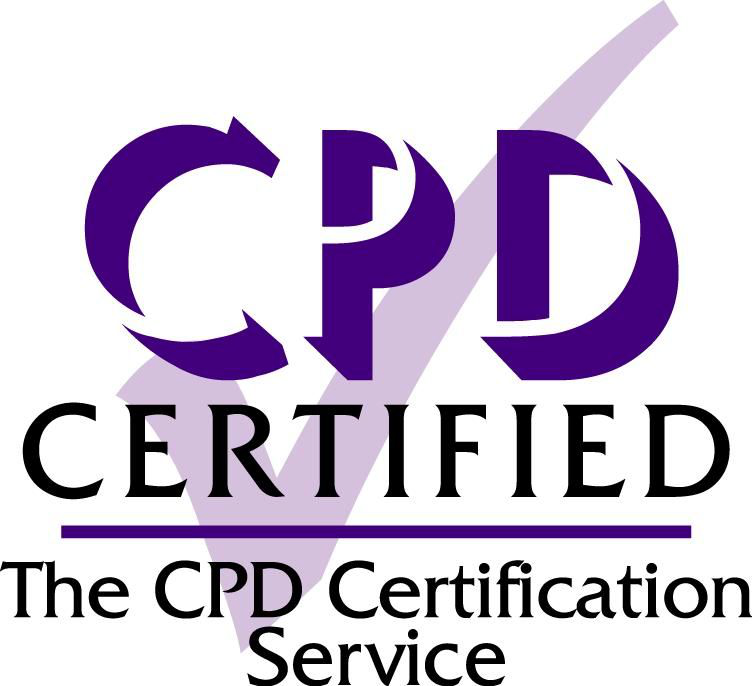
MBA Essentials
ONLINE CERTIFICATE COURSE
Enhance your managerial and leadership competencies and as you develop the essential skills needed for the successful running of any organisation.
10 weeks, excluding 1 week orientation.
8–12 hours of self-paced learning per week, entirely online.
Email: lseonline@getsmarter.com
Call: +44 2038 568 850
ABOUT THIS COURSE
The contemporary business environment is defined by frequent and considerable change in industry, markets, and technological advances. The MBA Essentials online certificate course from the London School of Economics and Political Science (LSE) arms you with essential hard and soft business skills to not only react and adapt to such changes, but to excel in any business context. Using an immersive, interactive and supported learning model, you’ll enhance your managerial and leadership competencies at a fraction of the cost and commitment of a traditional MBA.
This course balances knowledge and theory which will enable you to think differently and make better decisions by providing you with the practical skills and techniques required to achieve a greater impact within your organisation. You’ll also have the opportunity to expand your professional network by collaborating and engaging with an international cohort of like-minded business leaders on the course.
Note: This MBA Essentials online certificate course is not a credit-bearing course. It does not guarantee entrance into a traditional MBA degree. If you wish to apply for an MBA, you should be aware of the specific entry requirements and prerequisites.

This course is certified by the United Kingdom CPD Certification Service, and may be applicable to individuals who are members of, or are associated with, UK-based professional bodies.
The course has an estimated 95 hours of learning.
Note: Should you wish to claim CPD activity, the onus is upon you. The London School of Economics and Political Science (LSE) and GetSmarter accept no responsibility, and cannot be held responsible, for the claiming or validation of hours or points.
WHAT THIS COURSE COVERS
This 10-week course focuses on three core pillars of business management and leadership: the strategic environment, the financial toolkit, and the human element. Using a case study-based approach, you’ll learn to enhance your organisation’s competitive advantage through a better understanding of your business context and environment. You’ll also learn to use practical business and finance skills to analyse and optimise business operations. By the end of the course you’ll have developed the ability to use human behaviour insights and leadership frameworks to effectively influence at all levels within your organisation, and externally, with investors and consumers.
A POWERFUL COLLABORATION
The London School of Economics and Political Science is collaborating with online education provider, GetSmarter, to create a new class of learning experience – one that is high-touch, intimate, and personalised for the working professional.
ABOUT LSE
The London School of Economics and Political Science (LSE) is a leading dedicated social science university. LSE was founded in 1895 with the aim of understanding the causes of things for the “betterment of society”. LSE seeks to make research and teaching practical and relevant to the real world. The School counts 18 Nobel Prize winners and 37 world leaders amongst its alumni and staff. LSE has students from over 160 countries, and over 100 languages are spoken on campus.

ABOUT LSE ONLINE CERTIFICATES
LSE is dedicated to addressing global issues through research and education, and is the most international of all British universities. By offering online certificate courses designed by expert LSE faculty members, the School aims to make its state-of-the-art social sciences research and insights available to a wider global audience. The supported, interactive online learning model allows participants to study from anywhere in the world, at times of their convenience, while still interacting with peers and teaching staff alike.

ABOUT GETSMARTER
GetSmarter, part of edX, partners with the world’s leading universities and institutions to select, design and deliver premium online short courses with a data-driven focus on learning gain.
Technology meets academic rigour in GetSmarter’s people-mediated model, which enables lifelong learners across the globe to obtain industry-relevant skills that are certified by the world’s most reputable academic institutions.
As a participant, you will also gain unlimited access to edX’s Career Engagement Network at no extra cost. This platform will provide you with valuable career resources and events to support your professional journey. You can look forward to benefits including rich content, career templates, webinars, workshops, career fairs, networking events, panel discussions, and exclusive recruitment opportunities to connect you with potential employers.
WHAT YOU’LL LEARN
You’ll be welcomed to the course and begin connecting with fellow participants, while exploring the navigation and tools of your Online Campus. Be alerted to key milestones in the learning path, and review how your results will be calculated and distributed.
You’ll be required to complete your participant profile, confirm your email address for the delivery of your digital certificate, and submit a digital copy of your passport/identity document.
Evaluate the most effective persuasion tactics and principles to influence a business situation.
- Discuss the significance of lateral and upward influence compared to downward influence
- Apply the three categories of influence tactics, and the possible outcomes of an influence attempt, to a given situation
- Choose the most appropriate influence tactic to produce a desired outcome
- Apply the principles of persuasion to a given situation
- Distinguish between the bases of informal power, and recognise how non-verbal behaviour can increase informal power
- Select the most appropriate channel of communication to use in the workplace, given a set of circumstances
- Decide which influence techniques to use in a workplace situation of your choice, and justify your decision
Understand the key economic principles and market forces that affect business.
- Define economics and managerial economics
- Identify the factors that influence the shape and movements of an industry demand curve
- Identify the different types of firm costs
- Discuss the impact of marginal cost and marginal revenue on profit maximisation
- Discuss the factors that influence the shape and movements of an industry supply curve
- Illustrate how changes in the demand or supply of a product will influence the market clearing price of the product
- Investigate strategies managers can use to determine the shape of their company’s demand curve
- Evaluate the effect of government intervention on suppliers and consumers in a competitive market
Explain why firms need to gain a competitive advantage, and how to create this advantage.
- Identify the measures that can be used to determine a company’s performance
- Interpret a company’s strategy in relation to its business objectives
- Interpret the concepts of value creation and value capture
- Articulate the complexities involved in defining an industry
- Evaluate the sources of value creation and value capture as means to gain competitive advantage
- Predict possible threats to a firm’s ability to capture value, and how incumbent firms might react to these threats
Discover how companies can grow and expand their business activities.
- Define the value chain
- Articulate the concepts of vertical integration and contract incompleteness
- Apply the arguments made for and against vertical integration to a real-world decision
- Recognise the concepts of economies of scope and horizontal expansion
- Apply the arguments made for and against horizontal expansion to a real-world decision
- Evaluate the appropriateness of a company’s decision to diversify
Explore the principles of accounting to improve your financial expertise.
- Recognise the difference between financial accounting and management accounting
- Identify the users of financial information and their particular needs
- Identify the different types of businesses and their accounting considerations
- Discuss the relevance of accounting conventions when preparing accounts
- Complete an income statement and statement of financial position based on information provided
- Apply your knowledge of the statement of cash flows to practical examples
- Calculate basic financial statement ratios
Explore the use of financial tools to make better business decisions.
- Calculate break-even point, contribution margin, target profit and margin of safety
- Apply the principle of marginal costing to a business situation
- Articulate the challenges faced by a business during the budgeting process
- Articulate the use of different costing methods to improve a business’s performance
- Calculate the rates of return of different investment opportunities
- Select the best investment opportunity to pursue based on capital budgeting calculations
Learn how to analyse financial statements to identify problem areas.
- Recognise the importance of financial reporting, the regulatory framework, and standard setting
- Discuss the qualitative characteristics of financial statements
- Apply your knowledge of annual financial reports to a real-life example
- Calculate and interpret advanced financial ratios
- Identify the limitations of ratio analysis
- Explain the impact of management pressure on the accuracy of financial statements
- Analyse the financial statements of a business, determining its financial performance
- Recommend ways in which companies and shareholders can mitigate the risk of fraud and misrepresentation in financial statements
Discover techniques for minimising bias in judgements about people and finances in the workplace.
- Recognise the difference between a heuristic and a bias
- Identify the three fundamental heuristics and biases, and situations in which these may occur
- Discuss the main biases that occur when making judgements about people, or financial judgements
- Identify the techniques used to de-bias
- Apply the most appropriate de-biasing technique to a given bias
- Apply your knowledge of heuristics and biases in a novel context of your choice
Learn how to influence your peers and the decisions made by consumers.
- Define the concept of nudging
- Recall the six nudging techniques
- Discuss the ethical implications of nudging
- Describe real-world instances where nudging is prevalent
- Identify the choice architecture evident during your own purchases, and the influence it has on your decisions
- Show how, if you were a supplier, you would design and display your products to make the consumer’s choice easier
- Justify why the design and display of products in a particular way may lead to an increase in sales
Explore when culture change might be necessary to meet strategic objectives.
- Recall the general characteristics of culture
- Identify the relationship between culture and leadership
- Articulate the underlying complexities and multi-layered nature of culture
- Illustrate the characteristics, advantages and disadvantages of a strong organisational culture and subcultures
- Identify the phases of cultural change in an organisation
- Analyse how and when to use the levers required for cultural change in an organisation
- Recommend a course of action to initiate cultural change, and justify your recommendations
WHO SHOULD TAKE THIS COURSE
This course is designed for anyone in a managerial or leadership position, or aspiring towards one, as well as professionals and specialists who wish to gain holistic business knowledge to progress or transition in their careers. Given the nature of the course, it’s suitable for anyone who works within an organisation, owns their own business, or plans to do so. There are no formal academic prerequisites for the course, however, some business experience and numerical proficiency is recommended.
THIS COURSE IS FOR YOU IF YOU WANT TO:
APPLY NEW SKILLS
Develop and improve your effectiveness as a leader, with enhanced managerial and business knowledge.
GROW YOUR CAREER
Advance your career, with key MBA skills and validation in the form of an LSE certificate.
MOVE INTO A NEW ROLE
Transition into a new role, organisation or industry, with inspiration and ideas to make a positive impact from day one.
PREPARE FOR AN MBA
Build your foundational knowledge to complete an MBA at some point in the future.
ABOUT THE CERTIFICATE
Get recognised for your knowledge when you earn an official certificate of competence from the London School of Economics and Political Science – a world-leading social science university– and use it to validate your holistic business skills and enhanced decision-making ability.
Assessment is continuous and based on a series of practical assignments completed online. In order to be issued with a digital certificate you’ll need to meet the requirements outlined in the course handbook. The handbook will be made available to you as soon as you begin the course.
Your digital certificate will be issued in your legal name and sent to you upon successful completion of the course, as per the stipulated requirements.
WHO YOU’LL LEARN FROM
These subject matter experts from LSE guide the course design and appear in a number of course videos, along with a variety of industry professionals.
YOUR COURSE CONVENOR
Locke is a senior lecturer in the LSE Department of Management. Locke joined LSE in 2008 from the Boston Consulting Group and her areas of expertise are leadership, negotiation, decision-making and organisational behaviour. She is part of the academic leadership team for the Executive Global Master’s in Management, LSE’s cutting-edge alternative to an MBA, and also teaches the School’s most successful executive course on campus: Achieving Leadership Excellence. Connson holds a PhD and MSc in organisational behaviour from the University of California, Berkeley, and a BA in sociology from Harvard University. Her research interests include gender and leadership, diversity, and organisational culture.
COURSE CO-DESIGNERS
Jordi Blanes i Vidal
Associate Professor of Managerial Economics and Strategy, LSE
Dr Barbara Fasolo
Associate Professor of Behavioural Science, LSE
Khamid Irgashev
Chartered Accountant; Lecturer, LSE
HOW YOU’LL LEARN
Every course is broken down into manageable, weekly modules, designed to accelerate your learning process through diverse learning activities:
- Work through your downloadable and online instructional material
- Interact with your peers and learning facilitators through weekly class-wide forums and reviewed small group discussions
- Enjoy a wide range of interactive content, including video lectures, infographics, live polls, and more
- Investigate rich, real-world case studies
- Apply what you learn each week to quizzes and ongoing project submissions
YOUR SUCCESS TEAM
GetSmarter, with whom LSE is collaborating to deliver this online course, provides a personalised approach to online education that ensures you’re supported throughout your learning journey.
HEAD TUTOR
A subject expert who’ll guide you through content-related challenges.
SUCCESS ADVISOR
Your one-on-one support available during University hours (8am–5pm GMT) to resolve technical and administrative challenges.
GLOBAL SUCCESS TEAM
Available 24/7 to solve your tech-related and administrative queries and concerns.
TECHNICAL REQUIREMENTS
BASIC REQUIREMENTS
In order to complete this course, you’ll need a current email account and access to a computer and the internet, as well as a PDF Reader. You may need to view Microsoft PowerPoint presentations, and read and create documents in Microsoft Word or Excel.
BROWSER REQUIREMENTS
We recommend that you use Google Chrome as your internet browser when accessing the Online Campus. Although this is not a requirement, we have found that this browser performs best for ease of access to course material. This browser can be downloaded here.
ADDITIONAL REQUIREMENTS
Certain courses may require additional software and resources. These additional software and resource requirements will be communicated to you upon registration and/or at the beginning of the course. Please note that Google, Vimeo, and YouTube may be used in our course delivery, and if these services are blocked in your jurisdiction, you may have difficulty in accessing course content. Please check with an Enrolment Advisor before registering for this course if you have any concerns about this affecting your experience with the Online Campus.
